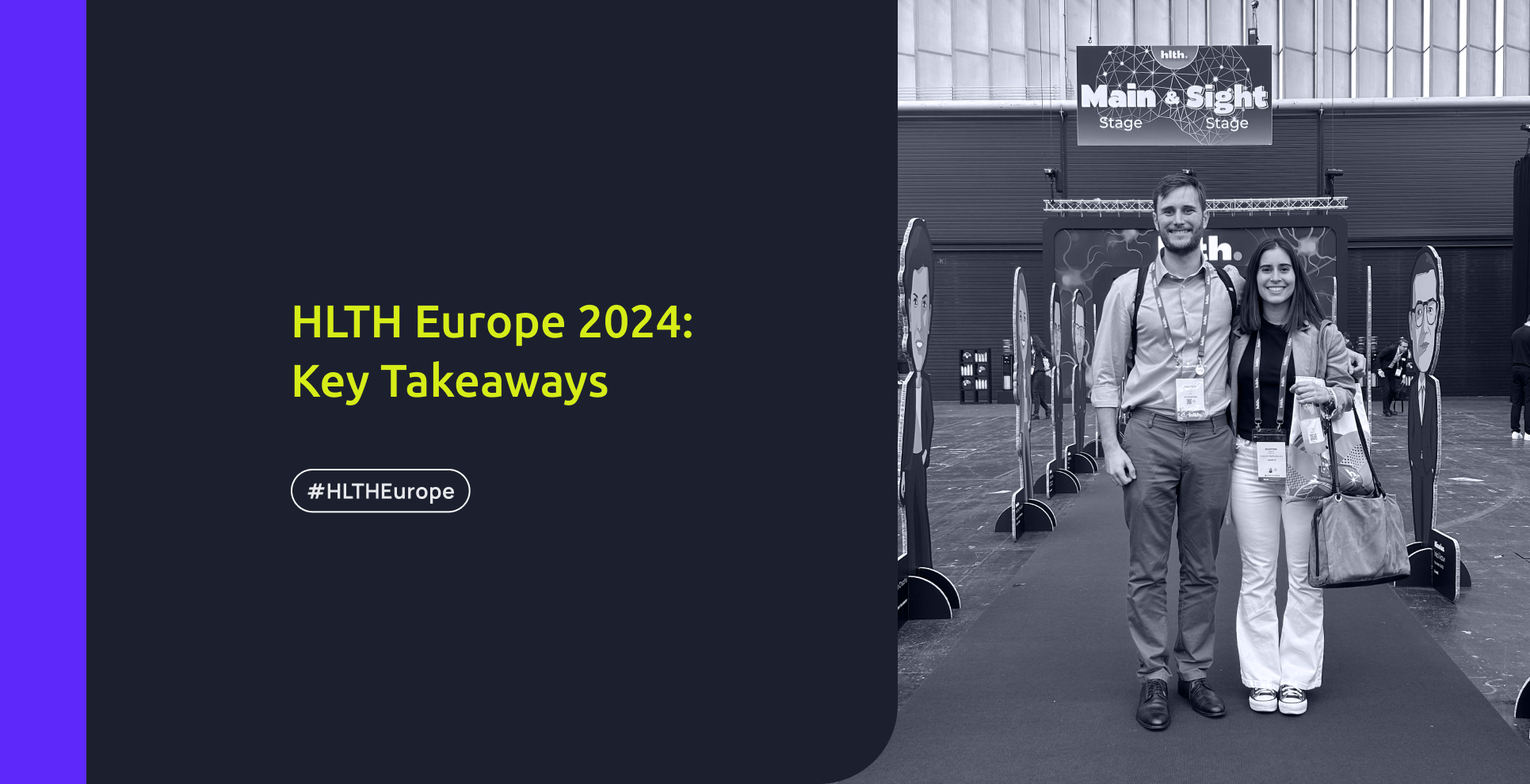HLTH is the biggest healthcare innovation event, and this year, they flew all the way to Europe for the first time. We were honored to be invited to cover it, DHI style!
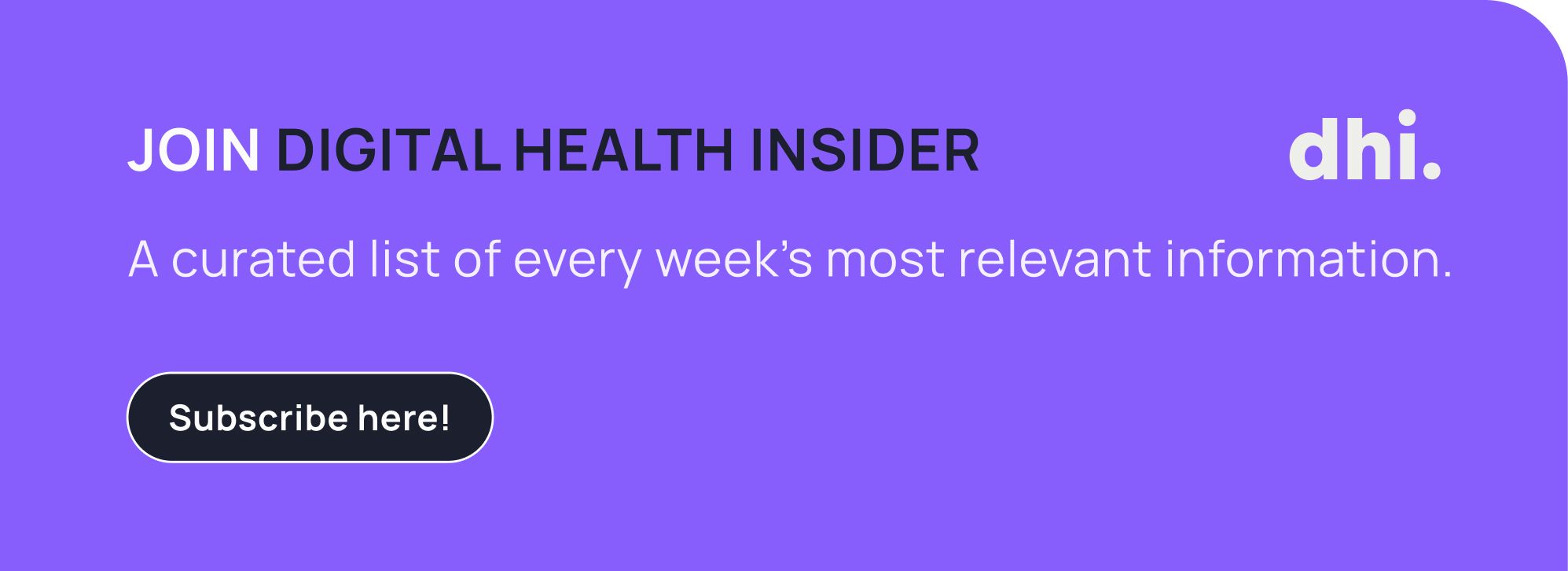
As you may know, this year, HLTH Europe took place in Amsterdam, Netherlands. With over 3,500 attendees, +400 speakers, +300 sponsors and +50 countries, this conference was the perfect opportunity for health systems, providers, investors, startups and patients' communities to connect over digital health innovations.
Light-it's Head of Partnerships, Agustina Bigatti, attended the conference, and she sent over the hottest discussion points, as well as the most game-changing panels and workshops. So, let's get into it!
HLTH Europe Day 0
Starting off with the first day (or as HLTH calls it, Day 0), these first few hours were mostly dedicated to getting us set in Amsterdam! Besides the registration and badge collection, the whole day was focused on connecting with other health tech leaders.
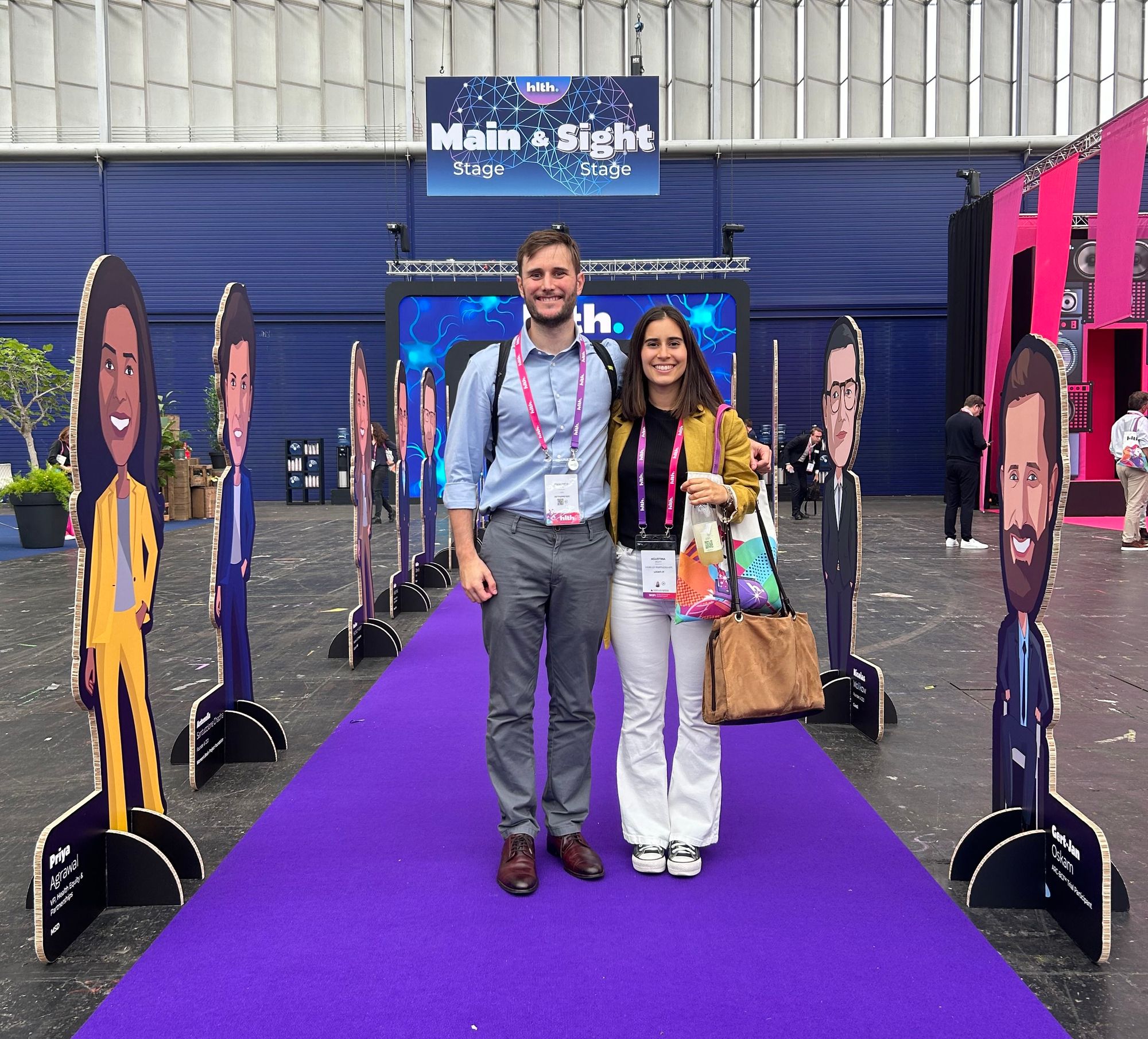
The first thing we did was grab a personalized, branded HLTH coffee, which was really cool, to be honest, and after grabbing lunch with the other attendees, there was a power walking tour through Amsterdam! Getting to know the city before HLTH Europe truly began was amazing, and it provided time to catch up with old friends and partners.
But that's not all! Day 0 also brought the Art Gallery's opening reception, as well as a welcome reception dinner, which was a great opportunity to meet European healthcare leaders, which, as you may know, we don't get to do often, because of our focus on the US healthcare industry.
Overall Day 0 was a great way to get into the HTLH wave!
HLTH Europe Day 1
Day 1 started off with a DJ set by Luca Nova, which really got us hyped up for HLTH Europe's first official day! After breakfast we went over to listen to our first panel discussion (Day 1 was PACKED of interesting discussions, yet we'll only be covering a few).
ChatGPT in the hospital: Helping hand or unhelpful hindrance?
We kicked off the day with one of the hottest topics up to date: leveraging Generative AI in healthcare.
Felix Nensa, Radiologist at University Hospital Essen, Arnaud WILMET, CMIO at Nuance Communications, Shez Partovi, Chief Innovation & Strategy Officer at Philips, Sara Siegel Global Head of Health at Deloitte, and Haris Shuaib, CEO of Newton's Tree, discussed the role of GenAI in health systems.
Ultimately, this was a great discussion to understand AI is here to automate and facilitate clinician's work, not replace it.
Yes it is: The future of health is female
The women's healthtech industry is at a critical inflection point. The US markets lead the way when it comes to tech investment, but women's health remains under-invested. Despite women constituting 50% of the population, only 1% of healthcare research and innovation investment is directed towards female-specific conditions, beyond oncology.
The Gender Gap in healthcare is a huge challenge, but if you want to learn more, we've held a roundtable discussion on opportunities in the FemTech industry!
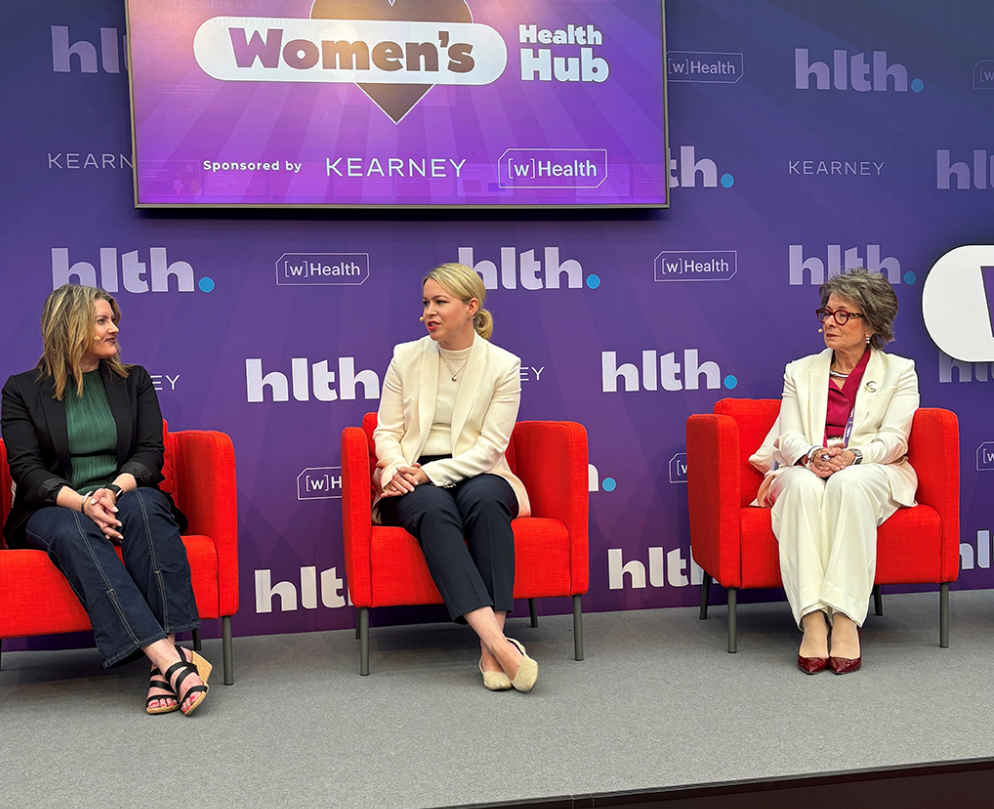
The discussion was presented by Rachel Byrne, Executive Director at Cerebral Palsy Foundation, Lesley Regan, Professor of Obstetrics and Gynaecology at Imperial College London, Astrid Meisner, Regional Business Unit Leader at Philips, Annie Theriault, Managing Partner at Cross-Border Impact Ventures, and Paula Bellostas Muguerza, Senior Partner and Global Healthcare & Life Sciences Practice Leader at Kearney.
Some of the quotes we wanted to highlight from this discussion were:
“We’ve seen a lack of research and investment in women’s health in past. We believe we can make a difference by supporting earlier access to care to improve outcomes.” – Astrid Meisner
"A woman is 7 times more likely to be misdiagnosed in the middle of a heart attack, or for it to be dismissed altogether just because we do not understand female biology" - Paula Bellostas Muguerza
Keynote: How ONWARD Medical is restoring thought-driven movement after paralysis
This panel was eye-opening, not only because of the discussion surrounding implantable technologies, and how this technology is paving the way to support functional recovery for people living with paralysis; but because we got to see first-hand how AI dramatically changed someone's life.
Gert-Jan Oskam is a 40-year-old Dutch man who was unfortunately paralyzed in a cycling accident 12 years ago, which left him with very poor movement activity in his body. But, thanks to AI, his life did a 180° and now he can stand, climb stairs, and have a more active lifestyle! This is because of ONWARD Medical’s DigitalBridge, which combines AI with implantable spinal cord neuromodulation and brain platforms that restores communication between the brain and the body, enabling thought-driven movement after paralysis.
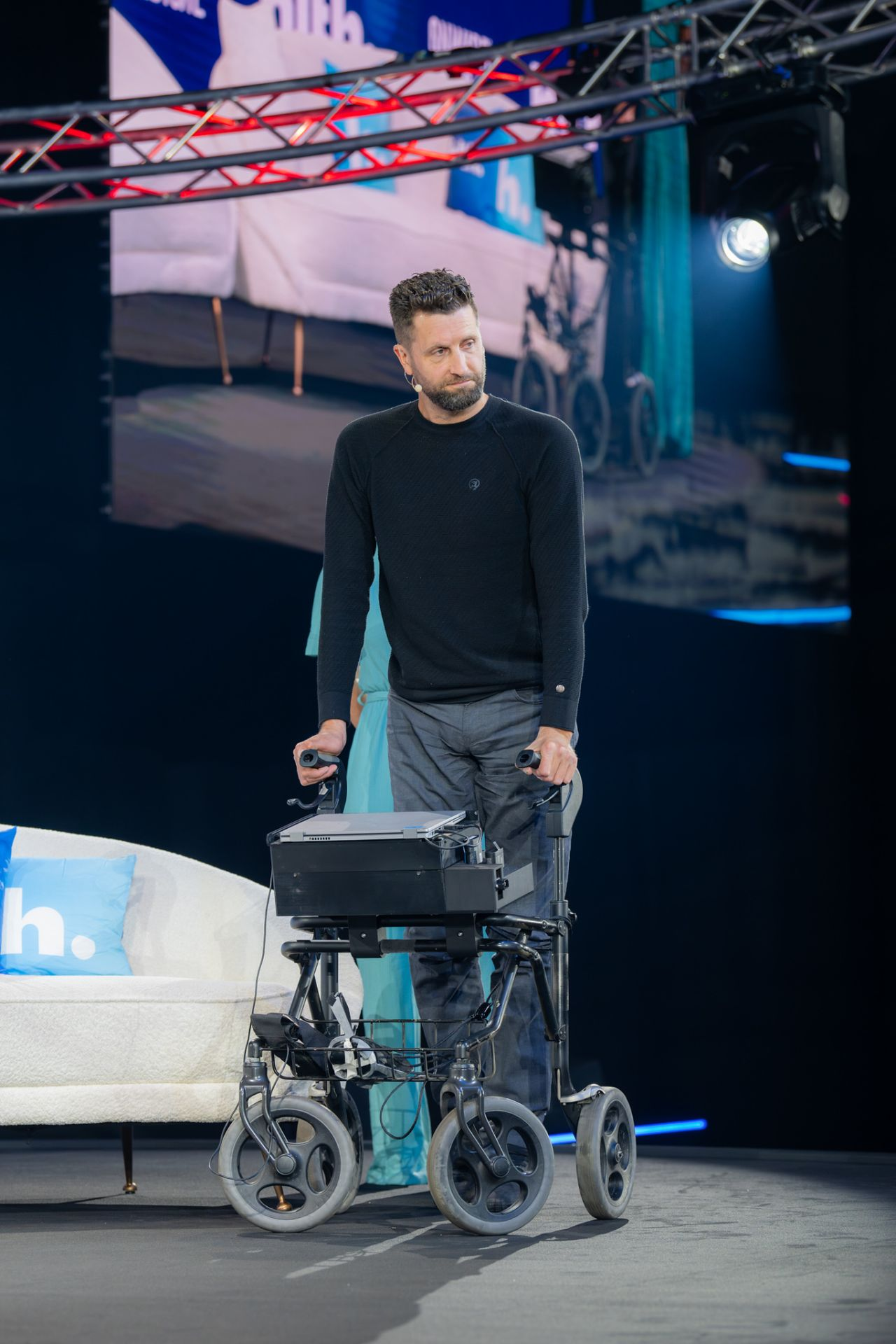
Listening to such an inspiring patient's experience was definitely one of the conference's highlights. We got to see how AI is actually improving people's lives, and it really had us reflecting on the importance of our jobs and our industry!
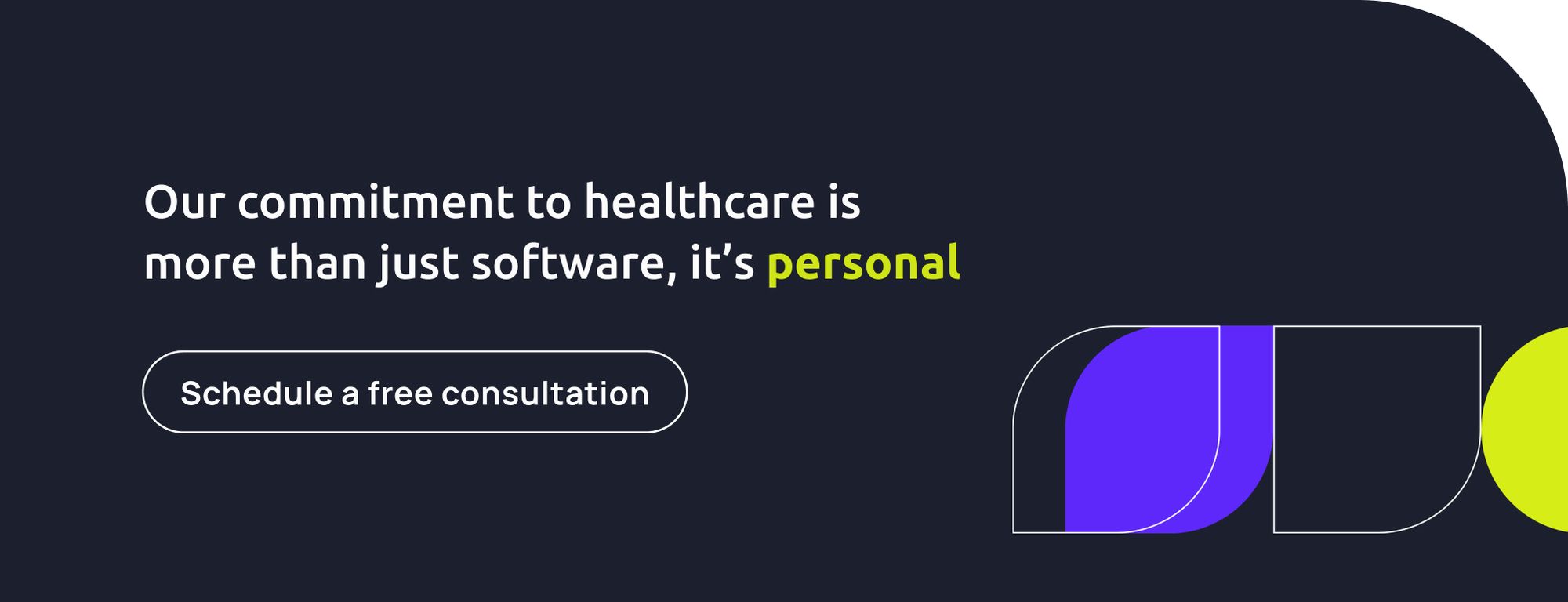
Hospitals meet AI
The last roundtable discussion of the day focused on transformation, innovation and radical collaboration for driving forward and AI-enabled hospitals that provides better outcomes for patients and staff alike.
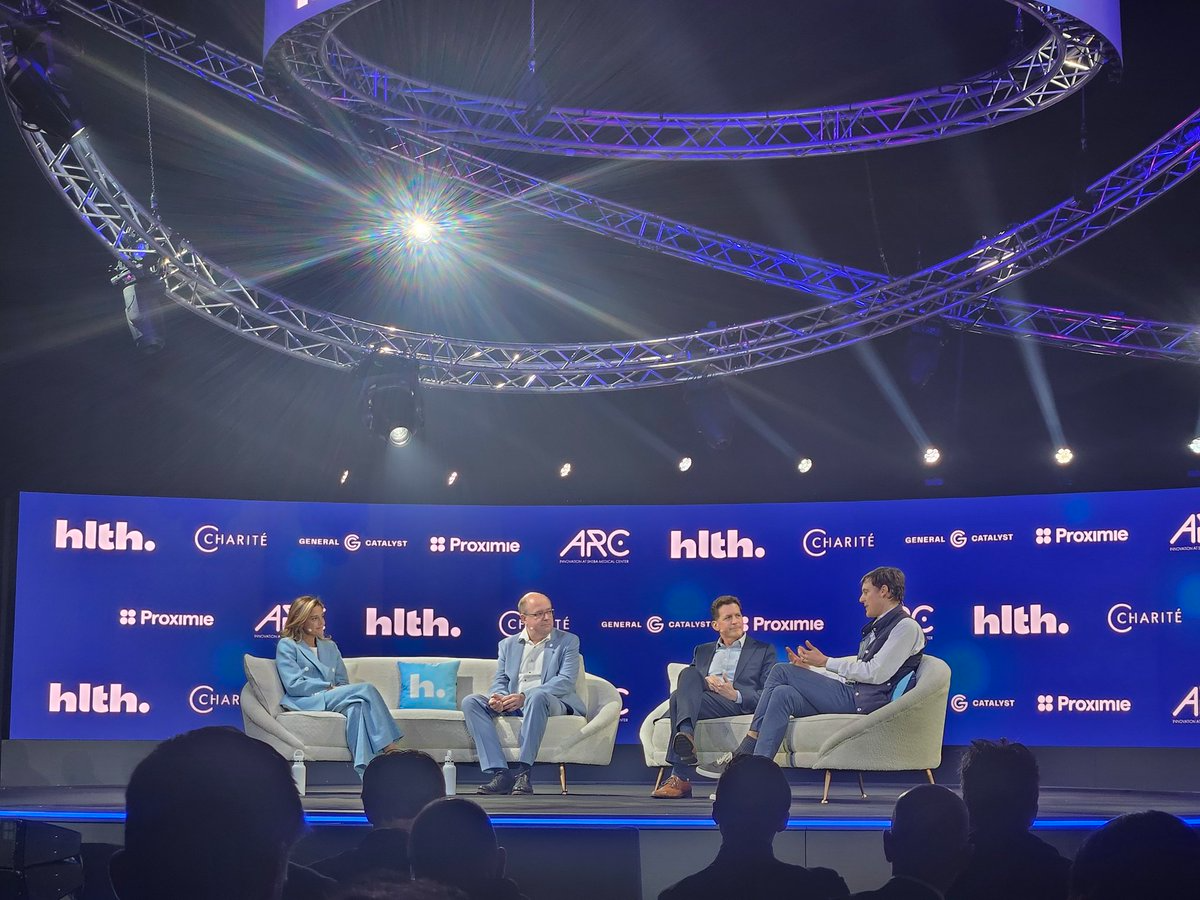
We listened to industry experts, like Eyal Zimlichman, MD, Chief Transformation Officer and Chief Innovation Officer at Sheba Medical Center, Tel Hashomer, Dr. med. Peter Gocke, CDO at Charité - Universitätsmedizin Berlin, Dr. Nadine Hachach-Haram FRCS (Plast), BEM, Founder of Proximie and Consultant Plastic Surgeon and Director of Clinical Innovation and Strategic Partnerships at Guy's and St Thomas' NHS Foundation Trust, and Chris Bischoff, Managing Director and Head of Health Assurance at General Catalyst.
The discussion was centered on artificial intelligence's opportunities to improve care and health system's processes:
"AI is not expensive compared to other technologies. AI is the solution to reduce the health equity gap. We need to create more evidence on the clinical & cost reduction benefits." - Eyal Zimlichman, MD
Day 1 left us inspired and bubbling with new and innovative ideas to improve the healthcare industry, and it was also really fun! Some of the cool stuff we saw included a salon, a hairdresser, and an ice-cream truck. Of course our day finished at the HLTH Beach social, where we enjoyed a playground and plenty of cocktails.
HLTH Europe Day 2
Wednesday started off with a sunrise yoga session (Agus always appreciates a good stretch before a busy day), and a walking tour through the city. After moving our bodies for a bit, we went straight into the panel discussions.
Ghosts in the machine: Empowering healthcare to capitalise on GenAI
The panel discussion was presented by David Rhew, Global Chief Medical Officer & VP Healthcare at Microsoft, Betsabeh Madani Hermann, Global Head of Research at Philips, Julien Hobeika, Partner at EQT Ventures, Claire Bloomfield, Senior Director, Development & Strategy at insitro, and Jim Swanson, Executive VP, Chief Information Officer at Johnson & Johnson.
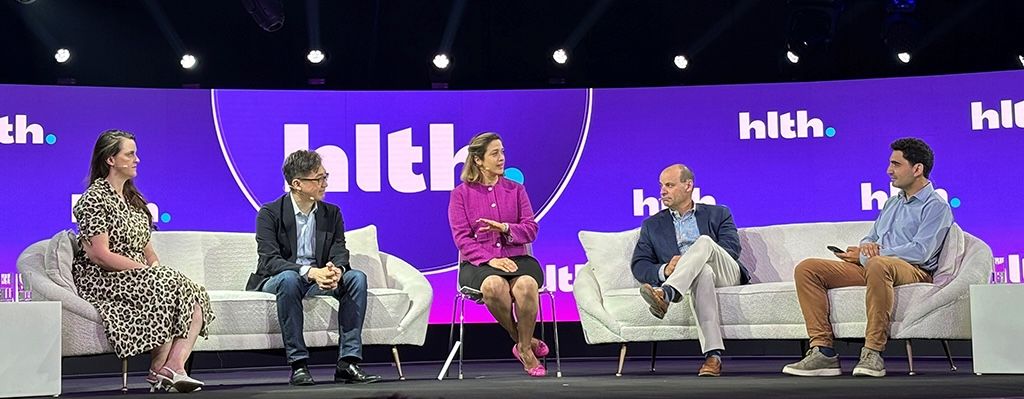
This roundtable focused on the actual factors health systems need to take into account if they're seeking to use Generative AI. We all know GenAI still has some work to do (trust, bias and accuracy-wise), but its benefits seem to override these possible errors. As Betsabeh Madani Hermann said, "Gen AI brings patient data together across the ecosystem to support a truly personalized assessment.”
However, implementing this technology requires a collaborative, strategic and trusting environment where it can thrive, and, as the panelists concluded, there's a lot of work to do in the healthcare industry.
Expecting tomorrow: Health's most fertile new market
Fertility is definitely a topic we haven't heard much of in healthcare conferences, so hearing how the digital health industry is revolutionizing ovulation tracking, hormone monitoring, fertility advice and conception aides, to name a few, is amazing.
This panel was given by Asima Ahmad, Co-Founder & Chief Medical Officer at Carrot Fertility, Nader AlSalim, Founder & CEO at Gaia, Jens Nörtershäuser, Founder & Co-CEO at Kranus Health, Natalie Getreu, Founder & COO at Hertility Health, and Leah Callahan, Senior Content Manager at HLTH Inc.

We learned roughly 1 in 6 people worldwide experience infertility in some form, making it a more prevalent health condition than other, much better-funded areas! Nader AlSalim had some truly interesting thoughts about the industry: no one should pay for fertility treatments until results are shown. He stated the only valid measures for fertility clinics are "dollar per birth and time to birth".
Day 2 was, again, filled with interesting panel discussions, but it was also full of fun and relaxing activities, like a gaming lounge, a painting activity (where Petunia joined us) and a DJ set by Ceci Fierce. When there's big conferences like HLTH Europe, we recommend taking time to enjoy these moments where you can share and connect with other attendees.
We finished off Wednesday by going to the HLTHfest, where we heard The Libertines play and danced the night off until day 3!
HLTH Europe Day 3
HLTH Europe's last day! Most of the attendees had left, so, as HLTH called us, only the "survivors" were left. Since this was the calmest day for networking, we dedicated most of my time to the panel discussions, which were especially interesting!
Goldmine or fool's gold? Extracting value from health data
One of the conference's trending topics was data. Healthcare data is extremely powerful, but its maximum potential is yet to be reached.
Lucy Orr-Ewing, Data & AI Policy Fellow at Stanford and NHS England, Ludovic d‘Aprea, CEO Solution for Enterprise Imaging at GE Healthcare, LaShonda Anderson-Williams, EVP & Chief Strategy Officer at Salesforce, Andrew Trister, Chief Medical and Scientific Officer at Verily Life Sciences, and Gloria Seibert, Founder & CEO at Temedica, discussed how to use data efficiently and differently in the healthcare industry.
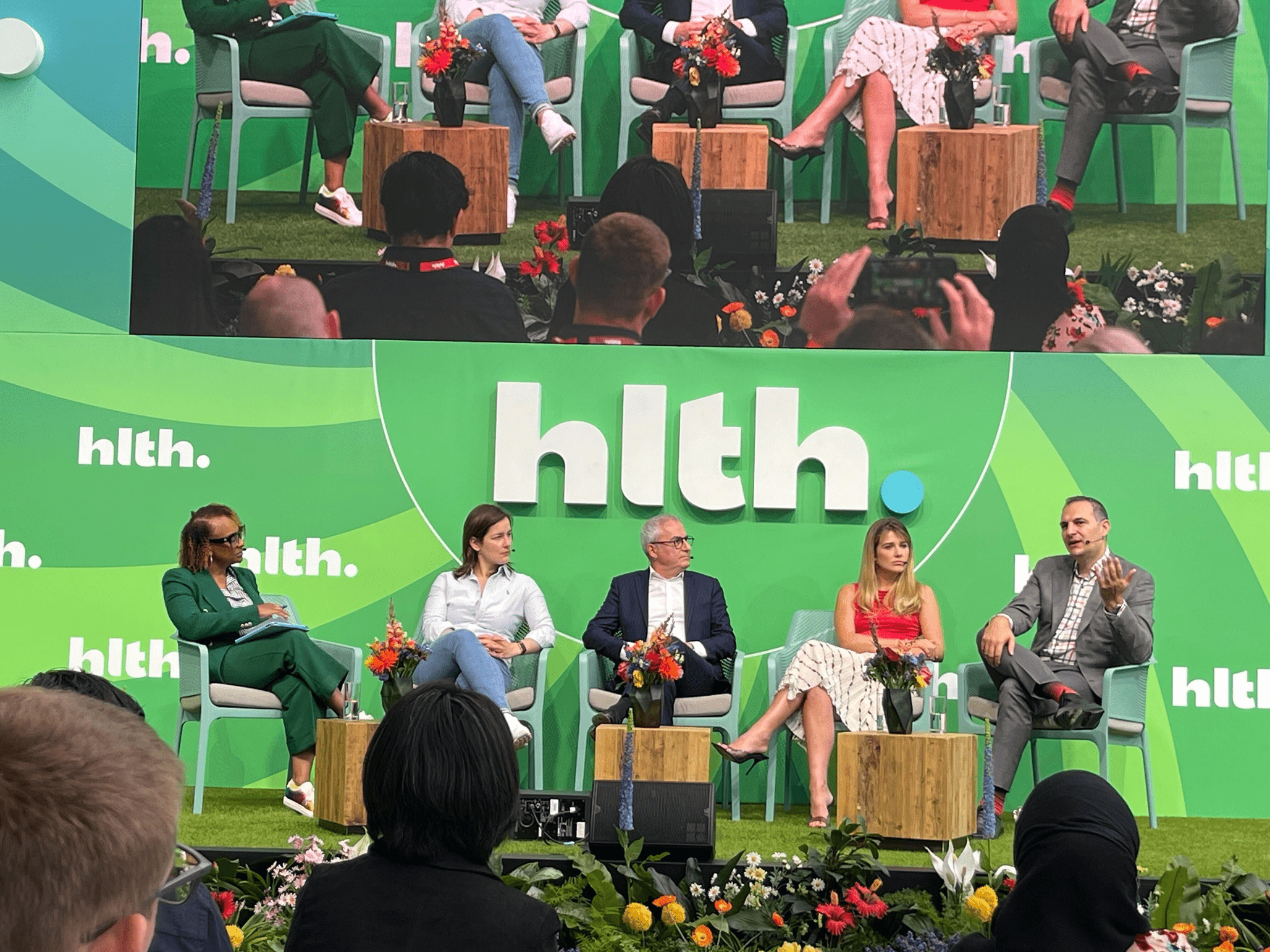
Having a data-driven approach seems to be essential nowadays, yet using artificial intelligence to manage it still raises concerns. "As tech continues its quest to improve care by leveraging data sets, there are questions about bias and representation we must address. Deep learning and Generative AI approaches must be designed to recognize these challenges.” - Andrew Trister.
At Light-it we truly believe technology and AI are game-changers for the healthcare industry, since it can alleviate workflows, administrative burdens and clinician burnout. We still have lots of work to do until we understand its full potential, but artificial intelligence is definitely a step forward in healthcare innovation!
Greener, leaner, cleaner: Healthcare's role in global warming
Lastly, we were really excited to end our visit at the conference with this discussion, because healthcare's impact in climate change is not normally addressed, so learning our industry creates twice the emissions of the aviation industry was an unpleasant surprise.
Aline Gomez-Acebo, Chief Sustainability Officer at ASISA, Rowland Illing, CMO & Director of Public Sector Health at AWS, Robert Metzke, SVP & Global Head Sustainability at Philips, and Stefanie Kneer, Head of ESG & Sustainability at Three Hills Capital, discussed how healthcare organizations can lessen their greenhouse emissions.
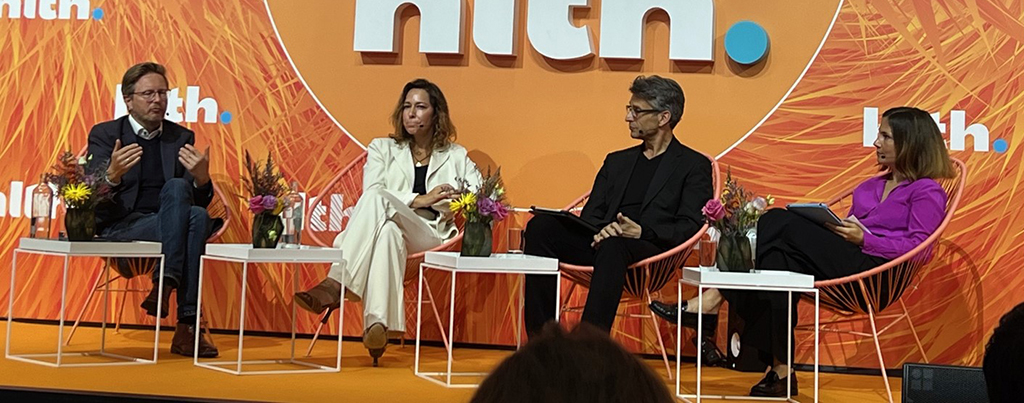
Robert Metzke spoke about his experience at Philips: “In sustainable healthcare there’s a gap in intention and action: In Philips Future Health Index nearly 90% of health leaders see climate change as crucial, yet many struggle to integrate it in their clinical workflows."
So, although we focus on improving people's lives, we always need to bear in mind that global warming is something we need to constantly watch out for, since a contaminated planet will ultimately worsen our health.
We're reaching the end! HLTH Europe's last day finished off with the Survivors' BBQ, where we shared stories of our week in Amsterdam. These last days were perfect for connecting with other digital health leaders, fostering innovative ideas and getting to know novel solutions in healthcare.
Special thanks to HLTH, who allowed us to cover Europe's biggest healthcare innovation event so our Insiders could stay in the loop. See you all at the next event!


